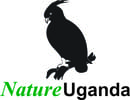Strengthening resilience in communities reliant on wetlands and conservation of critical biodiversity
Background
Uganda is one of the most biodiversity-rich countries in Africa with several biomes converging in the country. Currently, Uganda has 12 Ramsar sites designated for conservation of wetlands of International importance. However, Uganda’s wetlands have declined from 15% in 1994 to 8% in 2020 as they are faced with a number of threats that include; clearance and drainage for subsistence agriculture, unsustainable harvesting of wetland resources, and introduction of non-native species which all pose threat to critical biodiversity and livelihoods of local communities that are dependent on these wetlands.
Based on this background, this project aims to strengthen resilience in communities and conserve critical biodiversity in two selected wetlands; Mabamba wetland and Kiyanja-Kaku wetland. Mabamba wetland is a Ramsar site located on the Northern shore of Lake Victoria in Mpigi District, Central Uganda. It hosts over 300 species of birds including the globally threatened Shoebill (Balaeniceps rex). Kiyanja-Kaku wetland is located in the catchment of Lake Victoria in Lwengo district. It is known as a habitant of critically-threatened Grey Crowned Crane as it is Uganda’s largest breeding site for Grey Crowned Cranes with about 100 breeding pairs.
This project is funded by the 2022 Prince William Award for Conservation in Africa that was awarded to Achilles
Byaruhanga, NatureUganda’s Executive Director at the Tusk Conservation Awards.
Objectives of the project
- Improve the conservation status of Mabamba and Kiyanja-Kaku wetland.
- Restoration of the degraded part of the wetlands
- Promote Ecotourism in the region
Expected long term impact of the project
- Improve and secure the wetlands integrity and minimize further degradation
- Enhanced ecosystem services through restoration of the wetland
- Increased conservation status of globally threatened species
- Providing sustainable breeding site for Grey Crowned Cranes and Shoebills
- Increasing the potential for sustainable ecotourism in the region leading to improved income and employment opportunities
- Improved wellbeing of the community through improved household incomes based on sustainable ecotourism and food security through climate smart innovations.

